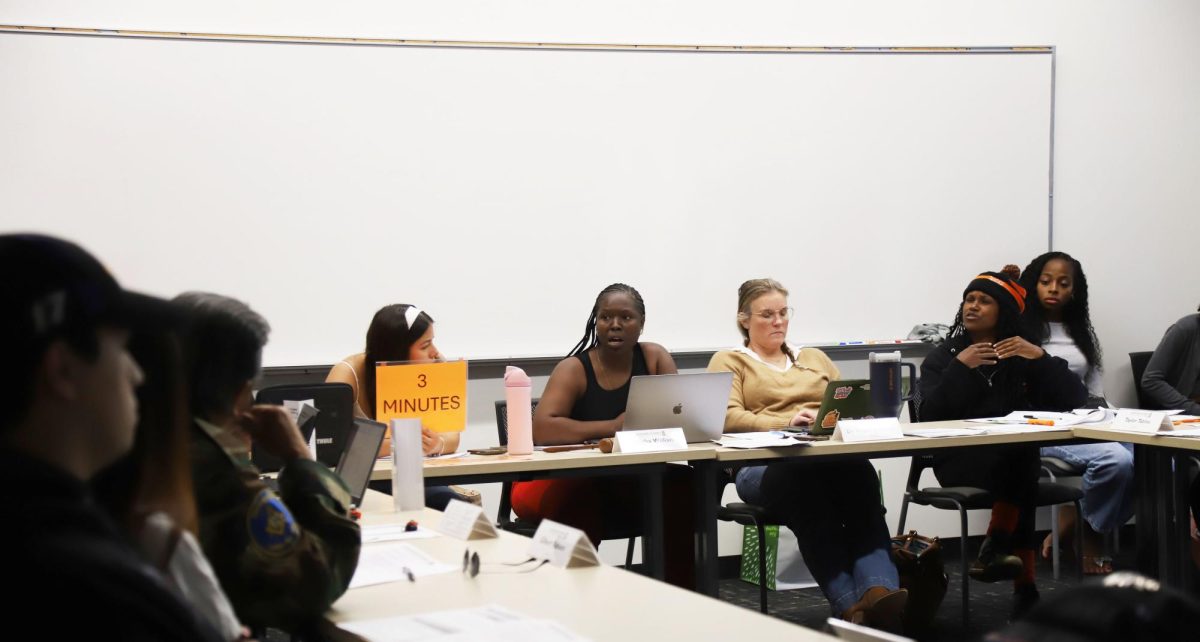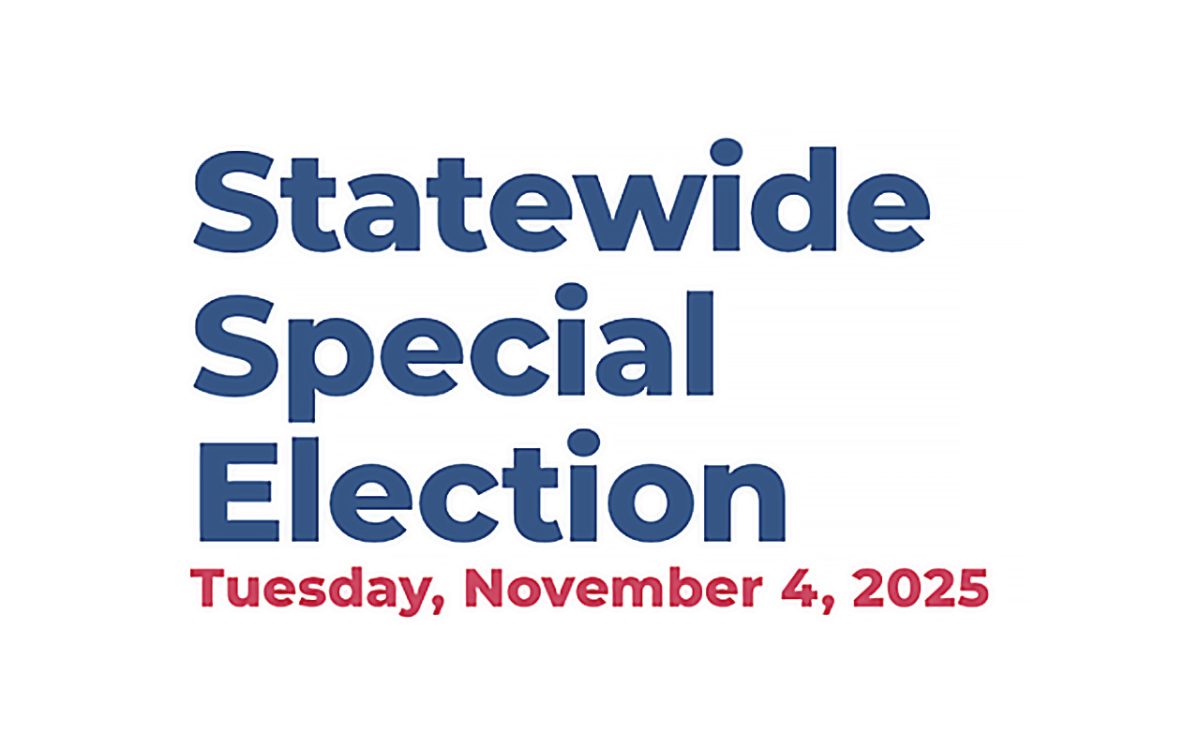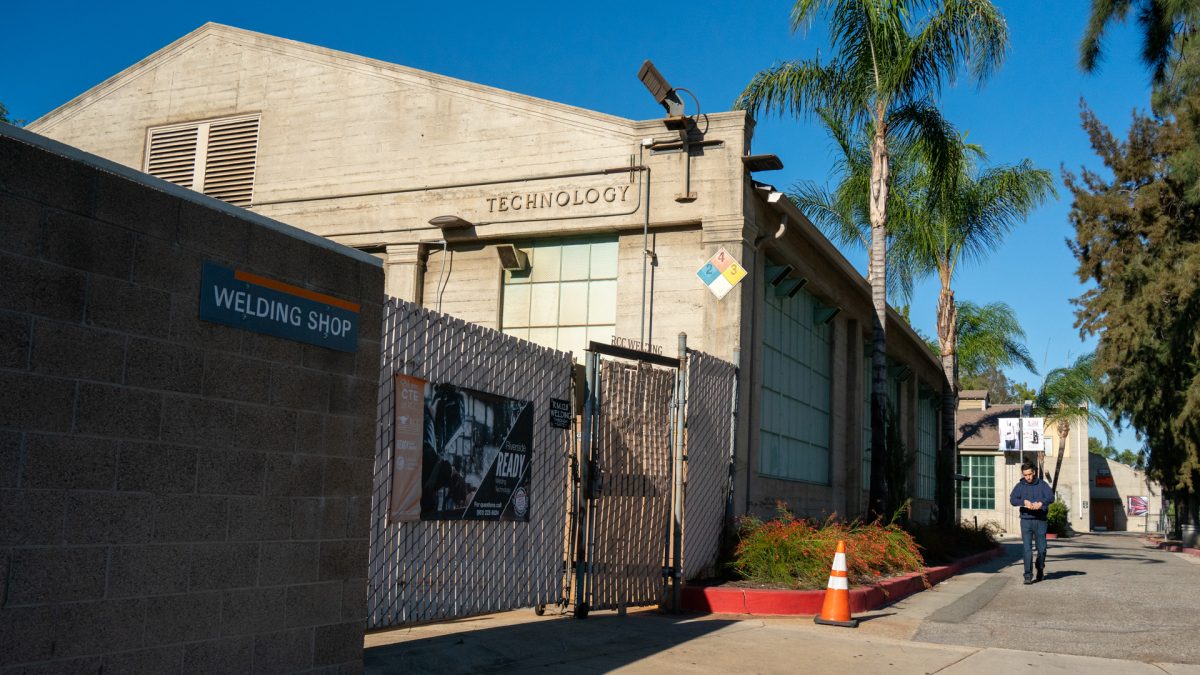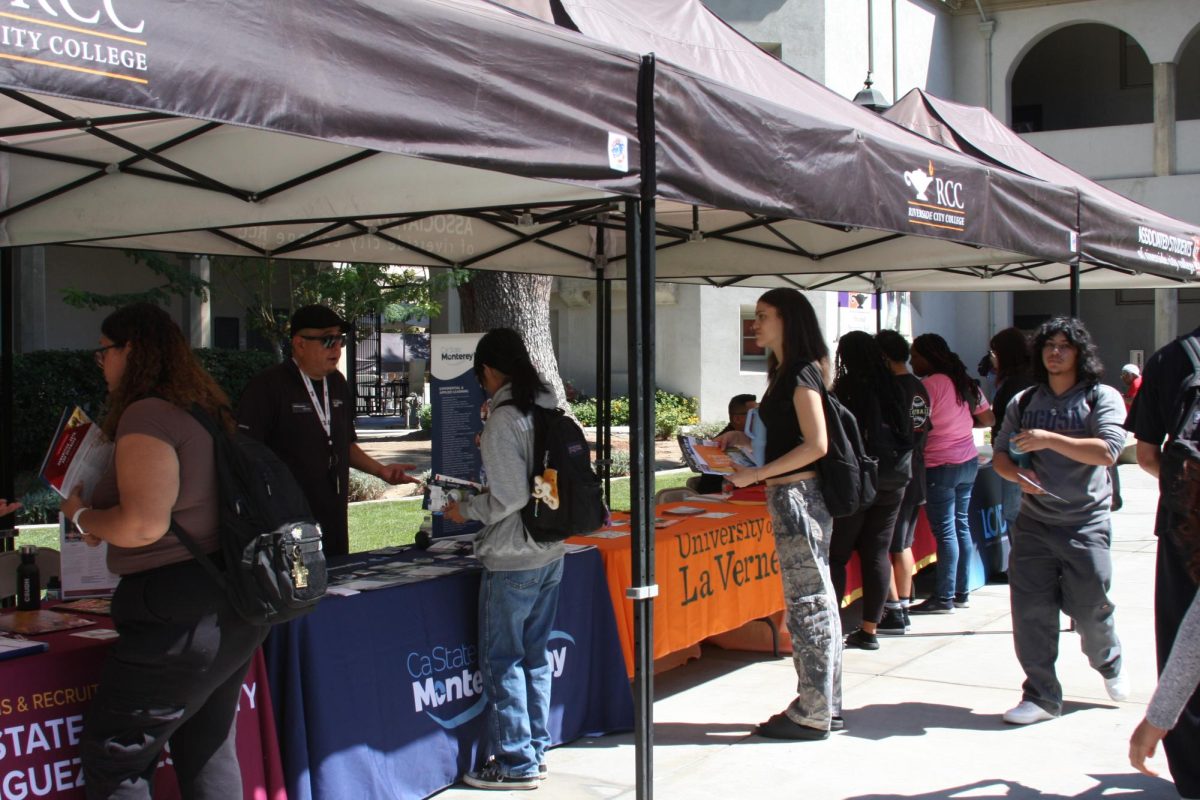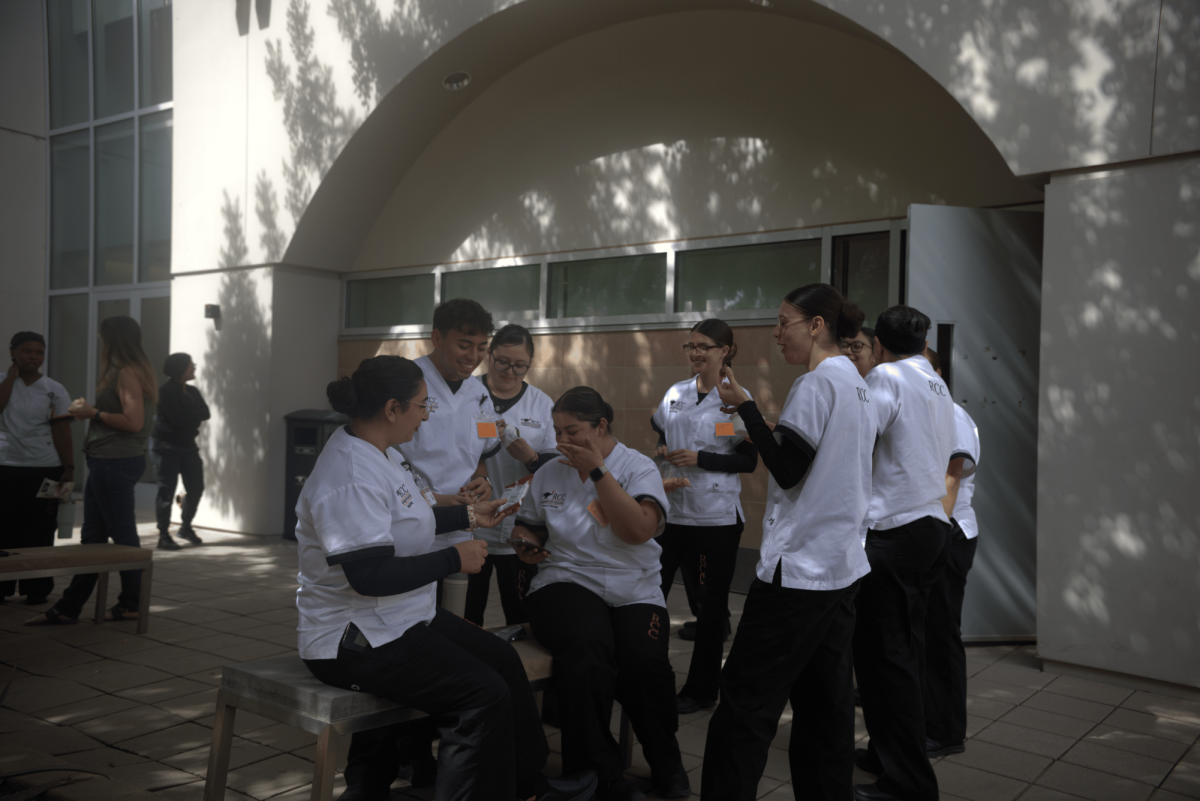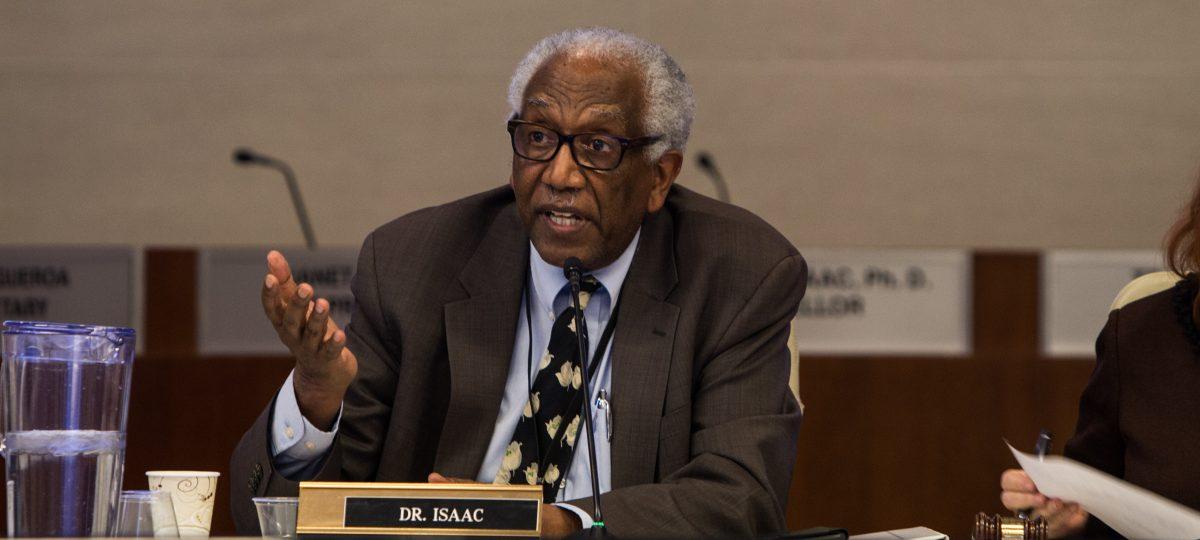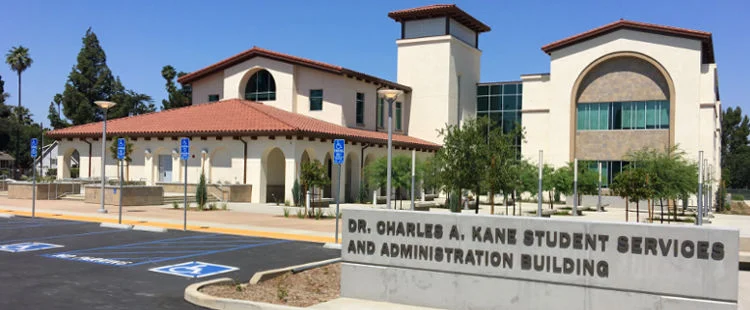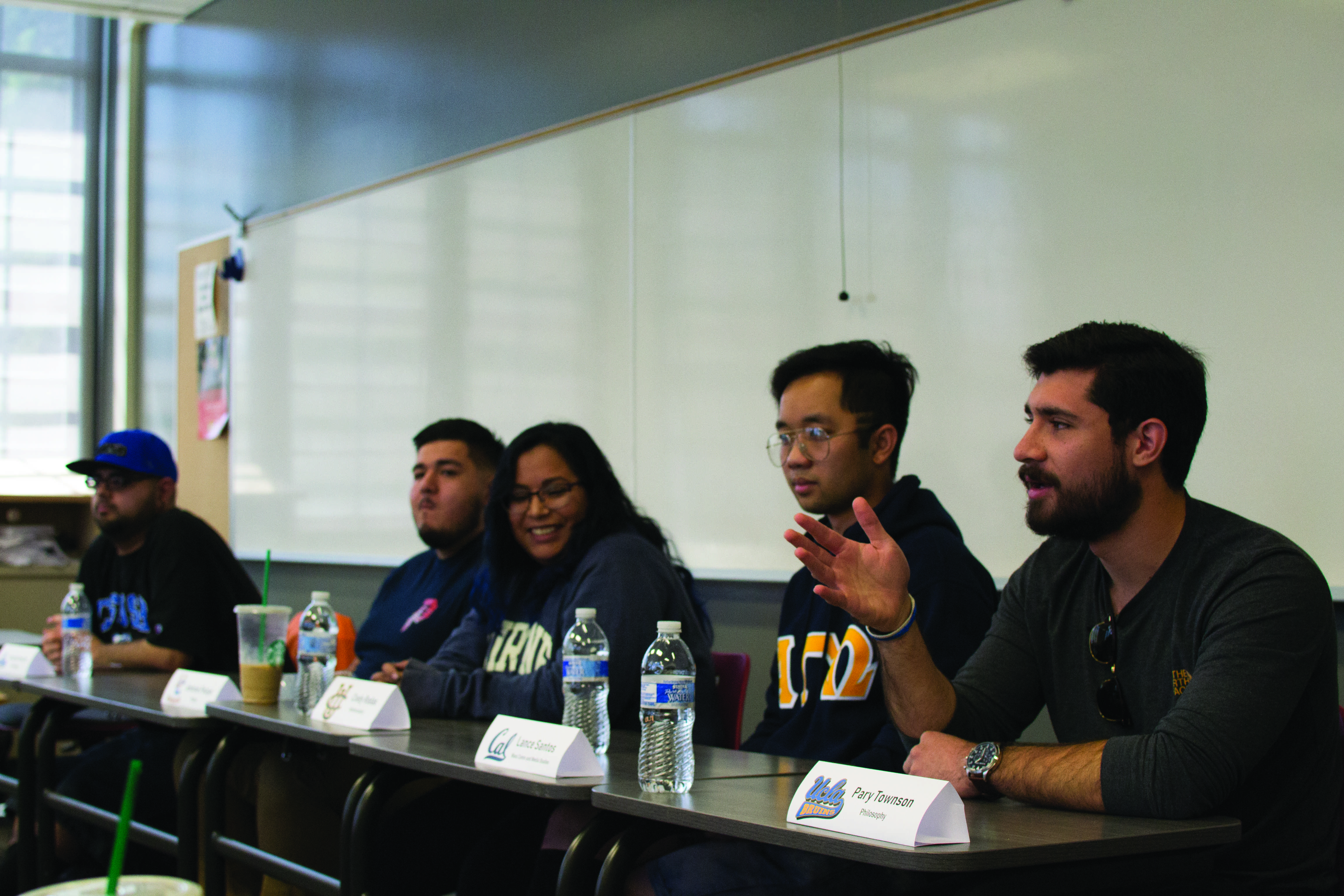
By Erik Galicia
For many students transferring to a university from a community college can be difficult.
Advice was given during the Honors Alumni Panel on March 28, which brought five former Riverside City College honors students back home to share their experiences about transferring to universities.
“The idea of the Honors Program is to transfer,” said Pary Townson, math major at UCLA. “I feel like the most ambitious students here at RCC are the honors students but once you transfer, you’ll be surrounded by students who are just as good.”
The alumni shared their experiences on the intensity of university studies in comparison to community colleges.
“It’s not harder, but it’s much more in depth,” Antonio Pelayo, history major at UC Riverside, said. “RCC is where you build your foundation, so work hard, just drive, drive, drive and don’t stop.”
“STEM-wise, it’s definitely harder,” Cindy Rodas, math major at UC Irvine said. “But they do that intentionally to weed people out, missing one day in a quarter system is like missing one week of class at RCC.”
The alumni also spoke about what the RCC Honors Program did for them, as well as the differences between community college and university life.
One of the big differences noted by the alumni was the obvious size differences between universities and community colleges. They agreed that along with a larger student body can come a smaller sense of self.
“The Honors Program here gave me community,” Pelayo said. “You have a more personal relationship with your instructors here.”
“You have to develop a sense of individuality,” Lance Santos, mass communications and media studies major at UC Berkeley said, “community is not handed to you at big universities the way the Honors Program offered it here and it’s a rare opportunity to have a one-on-one with professors.”
The speakers advised current RCC students to take advantage of the resources that will be available to them once they transfer. They encouraged the attendees to check out career centers and seek out internships.
Cal State San Bernardino anthropology major Giovanni Gonzalez talked about the help students at his school have available to them if they do not feel confident about their writing.
“They have writing counselors that help you write for your specific major or field,” Gonzalez said. “They go over everything with you like grammar and things like that.”
“If you want help, get it. If you don’t, you’re gonna sink,” Pelayo said.
The panel also stressed the importance of networking.
“It’s not enough to just go to a big university,” Townson said. “Make sure you are a part of something once you get there. The degree does not mean much if you don’t have the resources, connections, experience … go to office hours with your professors, go to alumni night, take advantage of the events, the job fairs.”
Gonzalez also talked about the opportunities you can find by talking to your professors and classmates.
“Talk to all of your professors, not just the ones in your major, even your professors here at RCC,” Gonzalez said. “They might offer different projects they’re working on … Talk to your classmates too. Some might be working on their masters or their PhD. Ask them what you have to do.”
Santos suggested joining clubs and fraternities to get yourself noticed and connected.
“Making friends is a form of networking and there’s always a professional benefit,” Santos said.
Rodas pointed out that as a math major she has experienced some small class sizes where professors push internships on all their students.
“Get noticed by answering questions in class, even if your answers are wrong,” Rodas said.
Townson warned students of the imposter syndrome students may experience shortly after transferring.
“You’re not walking in with an SAT score like these high school kids who were valedictorians,” Townson said. “We went to community college and you feel like you don’t belong. You need a support system … so don’t be afraid to use the mental health services.”
The panel concluded with an encouraging remark from the RCC Honors Program coordinator, professor Daniel Hogan.
“The Honors Program at RCC is preparing you for this,” Hogan said. “It’s gonna be hard, but it’s not gonna break you. You can do this.”
The Honors Program accepts applications year round. For more information visit the RCC school’s website.

